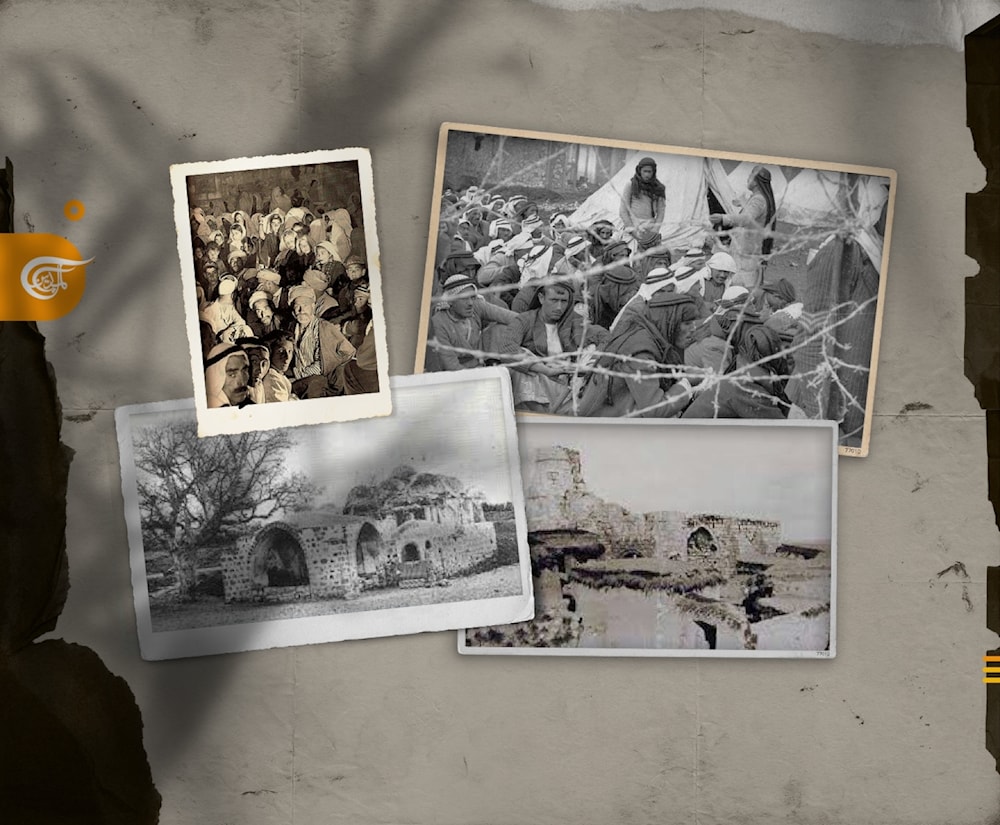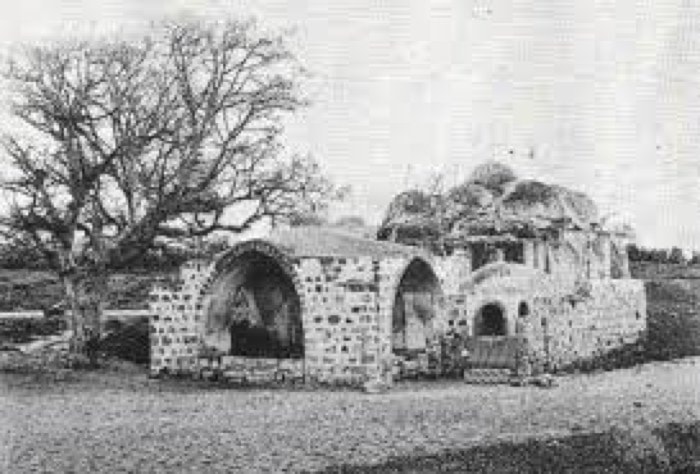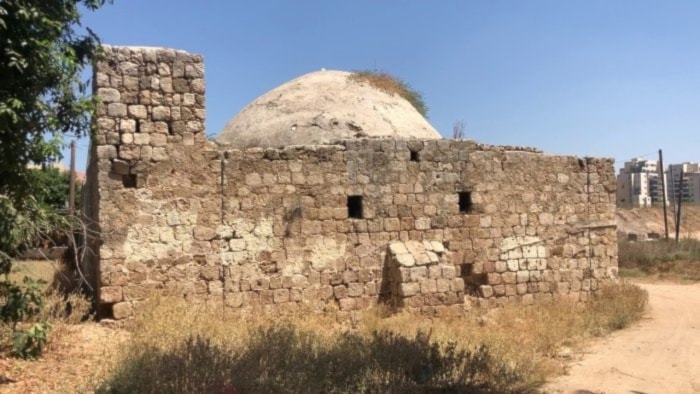Sarafand al-Kharab: How UK paved the way for massacres in Palestine
Massacres are one of the tools and methods implemented by colonial genocide, a tool to dismantle the social presence of colonized people. How did the massacre of Sarafand al-Kharab pave the way for the Nakba in Palestine? And what does a defeat in Gaza have to do with it?
-

In the morning, the army withdrew, leaving behind a ruined, burned down village, whose men were left dead on the road, and the rest were left with nothing. (Al Mayadeen Net)
Between the massacres of Sarafand al-Kharab (Ruined Sarafand) in 1918, Deir Yassin in 1948, Kafr Qasim in 1956, and Gaza since October 2023, we discover the development and methods of the Zionist colonial genocide, which all share the same basic principle: the dismantling of the Palestinian people’s social presence by committing massacres.
What is currently taking place in the Gaza Strip today, since the early moments of Operation Al-Aqsa Flood, is a Zionist massacre fueled by vengeance, which later became a deliberate massacre with a political objective using the war to dismantle the collective presence of the Palestinian people. Through this, the Palestinian currently living in occupied al-Quds or the West Bank is intended to become unable to resist in a manner befitting the seriousness and danger of the situation in Gaza, which is exactly what is happening today.
Small-scale massacres, like the Israeli massacres of Sarafand al-Kharab, Deir Yassin, Tantura and others, are intended to break apart the communal life of a certain town, and such examples have accumulated over time, leading up to the open (large-scale) massacre we are witnessing in Gaza today. This genocide targets the entirety of the Palestinian people, wherever they may be, disrupting their way of life, and introducing a gap between the lives they led before and the lives they would lead thereafter.
This is what led Palestinian researcher Khaled Odetallah to compare the 1918 massacre of Sarafand al-Kharab with the massacre in Gaza, which has been ongoing since October 8, 2023, as he posits that “going back to history is always, first and foremost, an act that informs political knowledge.”
Based on this, Odetallah studied the massacre committed by British colonial forces on December 10, 1918, when they attacked the town of Sarafand al-Kharab, west of al-Ramla, burning down people’s houses and murdering them. The massacre resulted in dozens of martyrs, the town’s complete destruction, and the forced displacement of those left alive. Odetallah based his study on a number of primary sources, including Palestinian collective memory, and British-Zionist archives, not to mention correspondences and aerial photographs.
Hajj Hassan Oueini, born in 1928, who hails from Sarafand al-Kharab, says, “This town included large swaths of land. In 1882, the Turks gave the Jews a portion of the land, on which they built the settlement of “Rishon LeTsiyon”, or Uyun Qara in Arabic, 3 km north of Sarafand al-Kharab. To the south of the village, they built the settlement of "Nezz Ziona" at the same time, followed by the settlement of “Be’er Ya’akov” around 2 km to the east, which at the time was called al-Jiftlik, meaning “for the Sultan.”
What happened in Sarafand al-Kharab?
One of the original townspeople, Jabr Salim Mohammad, told Palestinian researcher Akram Zuaiter in 1932 how the British martial authority raided the town of Sarafand al-Jadida (New Sarafand) at the time.
He tells of the presence of a British military camp surrounding the town, in addition to three Jewish settlements where the British Jews went to get drunk. These soldiers would go back to the camp through the town, drunk, which forced the townspeople to defend themselves and their families by hanging bells in town shops so they would ring them every time a soldier went into town.
Oftentimes, fistfights and scuffles would ensue between the townspeople and the drunken soldiers, which would end with these soldiers being run out of the town. One day, however, the British occupation government claimed that a soldier was found murdered, and alleged that he was killed in Sarafand al-Kharab. The townspeople, however, according to Jabr Salim Mohammad, had nothing to do with his murder. After that, a British Army force stormed the town in broad daylight, confiscating knives, wooden batons, and anything that could be used for self-defense, leaving the townspeople defenseless.
That night, the soldiers raided the town. The bells rang prompting the locals to gather and defend their town, unarmed though they were. They hid the women and children in an old building that only the townsfolk knew about. The men confronted the soldiers; some survived, some were detained, and the rest were killed before the British Army set the entire town ablaze.
In the morning, the Army withdrew, leaving behind a ruined, burned-down village, whose men were left dead, lying on the roads, and the rest were left with nothing, as barely any bread was left to eat. Some died after a great deal of suffering, and some were left crippled for life.
The Sarafand al-Kharab massacre, and Gaza’s role
As Odetallah dug through the ruins of what remained from the massacre in Sarafand al-Kharab today, he came to the realization that any mark that bore testament to this massacre had been erased. Even the mass grave in which the townspeople were buried was turned into a park, whereas the graves of the British soldiers were left untouched and remain in Palestine, including the grave of the soldier whose murder was the reason behind the massacre, according to the colonial story.
However, the most important thing, according to Odetallah, is that "the massacre would not have happened if Gaza had not been subdued and stormed by the British Army, who for the first time used chemical weapons against it, chasing down Ottoman forces, aided by what was known as the ‘Jewish Office’, which provided maps and information to the British."
Odetallah points out the role played by Gaza in the past, present, and future of Palestine. It always stood defiant against invaders and their plans to engulf the entirety of occupied Palestine; the fact that resistance is still ongoing there against the most brutal army in the modern world for more than five months bears witness to this.

 6 Min Read
6 Min Read










